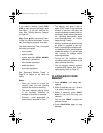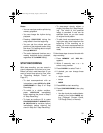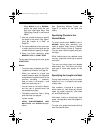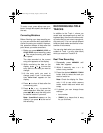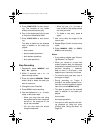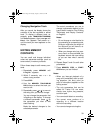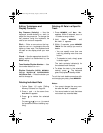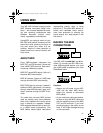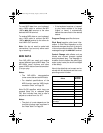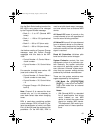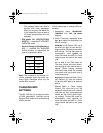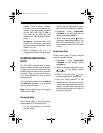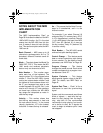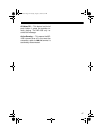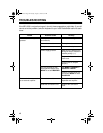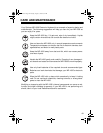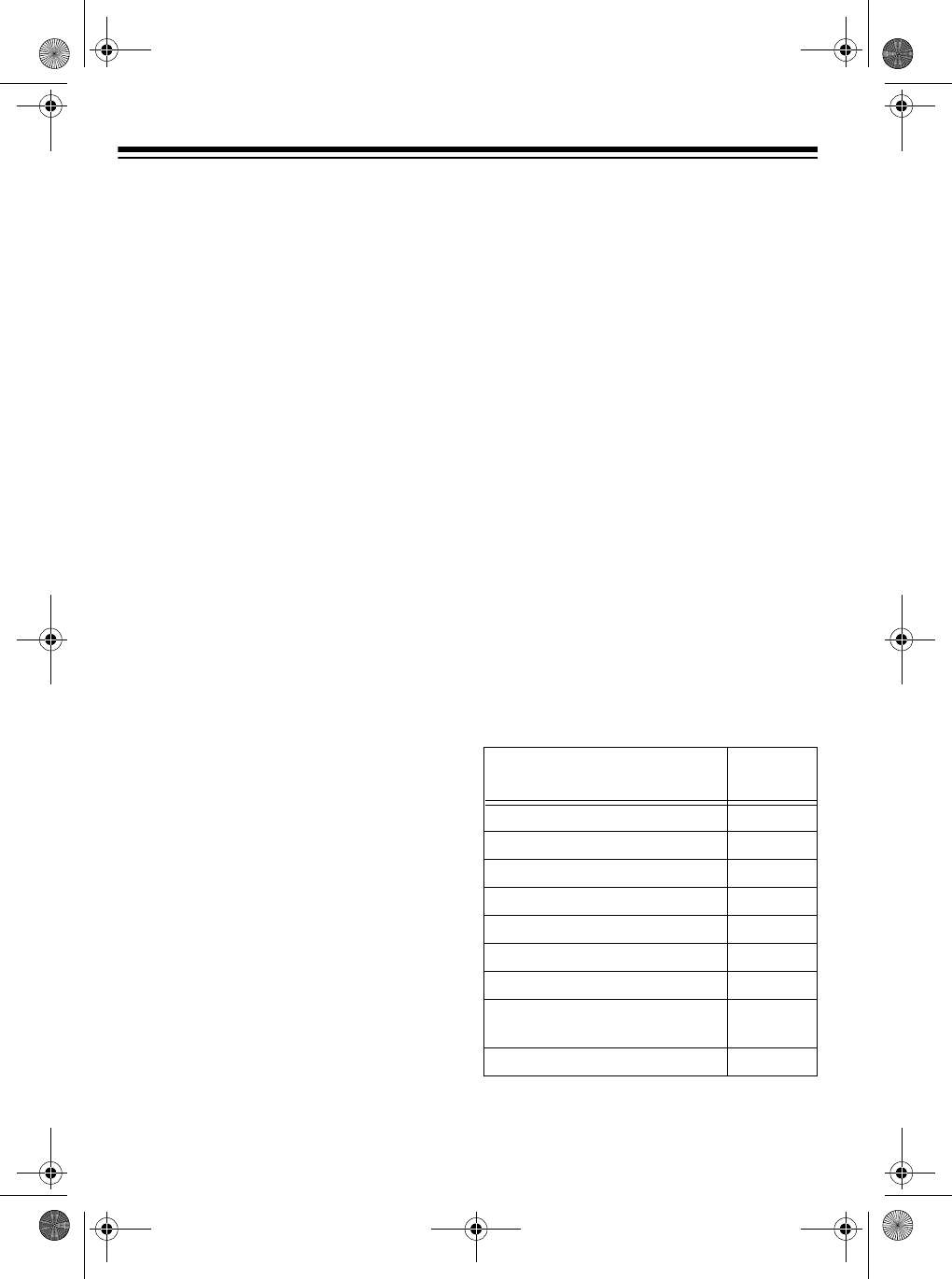
42
To send MIDI data from your keyboard,
use a MIDI cable to connect the MD-
1600’s
MIDI OUT
terminal to the other
device’s MIDI IN terminal.
To receive MIDI data on your keyboard,
use a MIDI cable to connect the MD-
1600’s
MIDI IN
terminal to the other de-
vice’s MIDI OUT terminal.
Note:
You do not need to make both
connections if you are only either send-
ing or receiving.
MIDI DATA
Your MD-1600 can send and receive
several different types of MIDI data. The
MD-1600’s tones, rhythms, and other
types of MIDI data are sent automatical-
ly as you play.
Notes:
• The MD-1600’s demonstration
tunes cannot be sent as MIDI data.
• For detailed specifications of the
MIDI function, see the “MIDI Imple-
mentation Chart” on Page 58.
Note On/Off specifies which keys are
pressed (Note On) or released (Note
Off). Also includes how loud a note is
played as a value from 0 to 127.
Notes:
• The pitch of a note depends on the
tone that is being used, as shown in
the “Note Table” on Page 52.
• If the keyboard receives a “request”
to play notes outside of its range
(higher or lower), it automatically
selects the same note in the nearest
octave.
Program Change
specifies the tone.
Pitch Bend
supplies pitch bend infor-
mation. A Pitch Bend operation on this
keyboard changes the pitch of the built-
in sound source and sends a Pitch Bend
message through the
MIDI OUT
terminal.
Control Change
adds effects such as
vibrato and volume changes applied
during keyboard play. The message in-
cludes a control number (the effect type)
and a control value (the on/off and depth
of the effect).
Here is the data that can be sent and re-
ceived with this keyboard and the corre-
sponding control number.
Effect
Control
Number
Bank Select 0, 32
Volume 7
Pan 10
Expression 11
Hold1 (Sustain) 64
Sostenuto 66
Soft Pedal 67
RPN (Registered Parameter
Number)
100/101
Data Entry 6/38
42-4043.fm Page 42 Tuesday, August 3, 1999 6:51 AM



